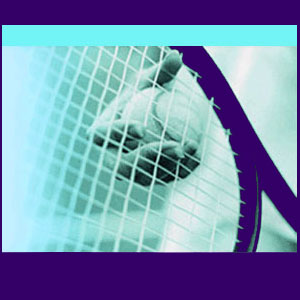
Tennis back pain can become a major concern for serious players and casual athletes alike. Tennis is a demanding sport, physically and mentally. Any pain associated with tennis will immediately affect the player, mind and body, undermining their game and causing them a great amount of emotional stress. After all, if pain comes on when they participate in the sport, they may have to choose between their favorite game and living a symptom-free life. Luckily, most patients can find lasting back pain relief, without giving up the activity they love so much.
This guide explains the causes of tennis-related pain syndromes that originate in the mind and in the body. We will also discuss some effective therapy options to get any serious player back on the court in no time.
Tennis Back Pain Syndromes
Tennis is associated with a variety of painful physical conditions most commonly linked to some theorized repetitive strain injury. Here are some of the usual diagnoses of tennis-related discomfort and trauma:
Tennis elbow is almost always blamed on injury or overuse. Instead, many cases are simple tendonitis conditions linked to psychoemotional factors. This goes for wrist pain and hand pain, as well.
Foot pain is often diagnosed as heel spurs or plantar fasciitis. These conditions do exist, but are actually rare in their symptomatic form. Some patients are actually suffering from ischemia-related foot pain which is misdiagnosed as a structural issue.
Shoulder pain is often diagnosed as a torn rotator cuff or arthritic syndrome. Both of these conditions are common and can be proven with diagnostic imaging. However, most are also coincidental to any pain involved. A great number of people have torn rotator cuffs and shoulder arthritis, as these are almost universal in athletic people as they age.
Back pain can end a tennis career on the spot. Nothing is worse on or off the court. Dorsopathy is very frequently another mindbody disorder linked to the psychosomatic process.
Mindbody Tennis Pain
Tennis requires concentration and a competitive spirit. Certain personality types gravitate towards tennis and are usually described as perfectionistic, self-motivated and driven people. These are the very same character traits which are linked to psychologically induced pain syndromes of all types.
For back pain sufferers, the underlying emotional reasons for the symptoms are usually quite sensitive, since this is a severe expression of psychosomatic pain.
Treatment depends greatly on the particular diagnosis made to justify the symptomatic expression. My advice is to remember that the vast majority of all actual anatomical issues respond very well to indicated therapy.
For long-term and treatment-resistant back pain complaints, the source is often oxygen deprivation, regardless of any coincidental spinal issue which may be present. Remember, research conclusively shows that most spinal irregularities have no connection to the occurrence of painful symptoms.
Competition and performance anxiety often bring out the traits in a back pain prone personality which create the ideal circumstances for symptoms to begin, continue or recur time after time. Although this is common knowledge to excellent sports psychologists and performance coaches, it often eludes most medical professionals who try in vain to treat some coincidental or idiopathic structural issue which is not even responsible for sourcing the suffering.
Tennis Back Pain Tips
Of course, it is certainly possible to injure yourself while playing any sport. We am not trying to theorize that all tennis pain is psychosomatic. This would be crazy. However, in our experience, people with purely structural conditions go to the doctor and treatment is rendered successfully, relieving the issue and curing the pain.
If you are reading this article, then we assume that your ongoing treatment has been a failure, as is the case with so many types of back ache concerns. It is for this reason that we mention the simple fact that so many cases of chronic back pain are indeed driven by a psychological process. The emotions may be directly related to tennis or they may be completely unrelated and simply using the game as an opportunity to present a convincing symptomatic display.
Just remember that the cure for these issues is easy to enact and free of all financial obligations. To learn more about treating this particular type of pain, consider researching the alternative medical practice of knowledge therapy.





